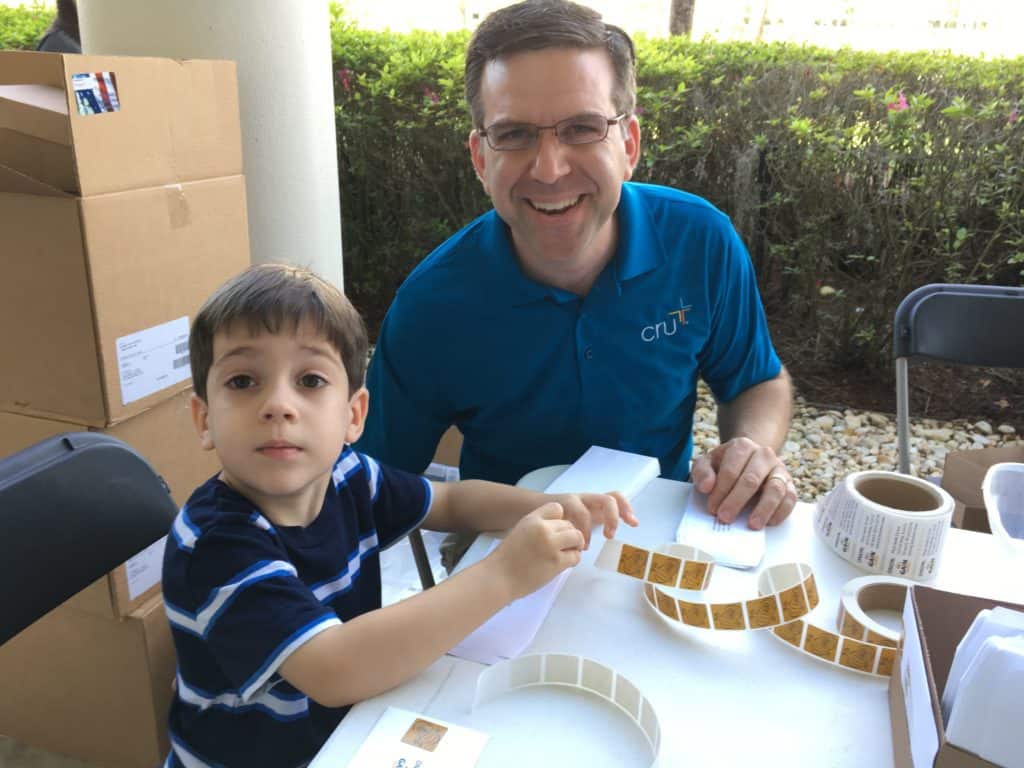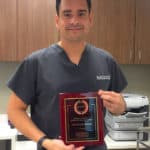
The country of Tanzania, in Africa, is home to some of the largest lakes in the world. Lake Victoria, in northwest Tanzania, ranks third in the world for overall surface area. But while Lake Victoria’s surface area is massive, it’s dwarfed by the volume of Tanzania’s Lake Tanganyika. This lake’s depth delves so far into the fathoms that its volume is nearly seven times that of Lake Victoria’s.
Yet in this country of lakes, in impoverished areas, children dig holes waiting for water to seep into their buckets – water that contains dangerous parasites.
This is why individuals with the Global Aid Network, which is the humanitarian arm of Cru (Campus Crusade for Christ headquartered in Lake Nona off of Moss Park Road), strive with local Tanzanians to build a life-sustaining infrastructure through agriculture. In the past few years, they have built nine wells and 22 community gardens.
But what does Tanzania have to do with Lake Nona? On Sept. 23, workers from GAiN (the Global Aid Network) are inviting us to join in the effort. Hosted by three Nonahood organizations (University Presbyterian Church Lake Nona, Cru and Pioneers), we will pack seeds for sustainable agriculture programs in Africa.
The seeds are vegetable heirloom seeds. They’re called “heirloom” because they have not been genetically modified (non-GMO), and they are open-pollinated. “Open-pollinated” means that these seeds will grow to be roughly identical to their parents, an extremely useful trait in gardening.
After we have packed our seeds in Lake Nona, GAiN workers will ship them on to countries such as Zambia, Zimbabwe, Tanzania, Mali and Rwanda. GAiN partners with people in these countries to make sure the seeds get to those who most need them. Along with the seeds, GAiN workers will provide agricultural training to locals on the receiving end so they can sustain future crops.
Most of the seeds we pack will be used in community gardens where multiple families work together to keep the vegetables growing. Some might go to schools, orphanages and families who will plant their own gardens to tend.
In addition to our seeds providing a variety of nutritious vegetables for struggling communities, successful gardens can generate an excess of vegetables to be sold at markets. This income can fund school repairs, supplies and student fees as well as orphan care, medicine and other community projects.
The power-packed heirloom seeds we’ll be packing in Lake Nona can give a community long-term food security. GAiN workers estimate that each seed pack will grow 10 pounds of vegetables in the first harvest.
At a typical seed packing event, 300 volunteers can pack 40,000 seed packs in two hours. And each pack is expected to yield ten pounds of vegetables in its first harvest.
In Lake Nona, we’re looking to have 450 volunteers packing 60,000 seeds. So it’s likely, with a little water and good tending, that more than half a million pounds of vegetables will soon be growing in impoverished African communities.
But because these aren’t just any seeds, we’re expecting that the Lake Nona effort could grow into countless millions of African vegetables. Perhaps the volume that our heirloom seeds will produce will rival the depths of Lake Tanginyaka.
The event will be Saturday, Sept. 23, at Pioneers, 10123 William Carey Drive, across from Walmart and RaceTrac.
For more information, visit upc-lakenona.com/seeds.



[…] was mentioned in a previous article here [https://nonahoodnews.com/lake-nona-seed-packing-event/], these aren’t just any seeds, they’re heirloom seeds – seeds that can be used to continue […]